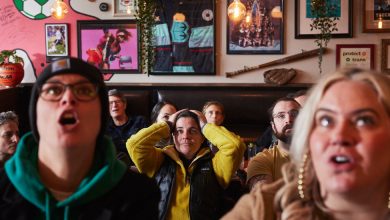It’s a Dog’s Life, if You Want It

For much of my 20s, my knowledge of life in New York City, often in neighborhoods I could never hope to afford, was in part the result of my willingness to care for other people’s dogs.
This is how I learned about doormen, and cleaning services, and garbage chutes. The politics of dog runs. The off-leash hours in Central Park. The fact that some buildings still have elevator operators. The reality that the list of instructions that accompany pet care are often twice as long as the ones that come with children.
Even now, in my 40s, when some of the urban luxuries are closer in reach, I still say yes to most dog requests. I am a dog person without a dog, and dog sitting is the sweet spot where all the joy meets none of the cost.
During the pandemic, these requests all but disappeared for the obvious reasons: People weren’t leaving their dogs, ever.
Indeed, if it had been possible to construct a heat map of happiness in the spring of 2020, it’s likely the hottest spot would have been Riverside Park on the Upper West Side of Manhattan during the daylight hours.
While much of the world, including New York City, was suffering through the first, brutal wave of Covid-19, a certain segment of the local dog population was living their best life (a step up from their already very good ones).
Freed from the daily group walk — that iconic image of 10 or more dogs, leashes intertwined, in perfect, if somewhat begrudging, lock-step, being walked by a laser-focused professional —these pups were getting sustained individual attention from their locked-down, stressed-out owners. Secret life of pets no more.
Now that borders have reopened and people can travel once again, I’ve personally experienced an uptick in requests (and have observed the resigned dogs, relinquished once again to the group walk). No doubt some of this is because of the number of people who became dog owners during the pandemic. In March 2020, there was a sharp rise in foster applications. Last year, the Journal of the American Veterinary Medical Association reported that 45 percent of households now own dogs, compared with 38 percent in 2016.
It’s not just me. The repercussions of the Great Doggy Surge of 2020 are being felt nationally, said Amy Sparrow, the president-elect of the National Association of Professional Pet Sitters. “It’s exploded everywhere.”
Now all these puppies are having to learn to be alone, and owners are having to learn to leave them.
“There’s major separation anxiety,” said Jamie DeChristopher of LuckyDog in Brooklyn who has been boarding dogs for 20 years. “Dogs will start to destroy things in the house. They will howl and bark. They are all of a sudden left alone, and they don’t understand that. Everybody was home and now people are going back to the office or don’t have the time for their dogs that they did.”
So who are you going to call? Dog sitters. But are the nonprofessionals — friends or family, let’s say — happy to come? Not necessarily.
The less-than-enthused dog sitters, or those who outright refuse to do it, exist, though they can be hard to pin down. In the course of reporting this article, I heard from plenty of people who wanted nothing to do with the doggy care business, but the minute they were asked to go on the record, they immediately rescinded. A number of people told me they leaned on their “allergies” when declining requests.
“You can’t tell people you don’t like dogs,” said Melanie Nyema, 41, a performer who lives in New York City. “They automatically think it makes you some kind of psychopath. You may as well have said you like to kick babies.”
For the record, Ms. Nyema has nothing against other people’s pets — and likes babies very much — but is, simply put, “just not into dogs.”
“I don’t touch escalator handrails or hold poles in the subway, either. You can’t know where people’s dogs have been.”
Jason Duffy, 48, a producer in Los Angeles said dog sitting was akin to ““driving a friend to LAX.” “I love you, but woof,” he said.
And, for the owners, it’s not always easy to ask. Bryn Diaz, 43, lives in Alpine, Utah, owns two dogs and feels more comfortable having someone she knows take care of them. The only hitch, she said, is “I hate to impose and don’t want friends to feel like they are obligated to help.”
The reasons some leap at the chance are better documented: A lot of people love dogs, and the emotional support they provide works two ways. Nikita Char, 22, a recent graduate of Binghamton University, who lives in the Bay Ridge section of Brooklyn with her parents, in a building that does not allow dogs, found reassurance in the two female German shepherds she stays with and cares for frequently.
“They really helped me during the pandemic to get my mental state back,” she said. “Just the comfort of a dog is honestly sometimes better than a human.”
Julian Weller, 31, an podcast producer in New York agreed. “It’s like another way of socializing, but you can use muscles that haven’t been tired out in the same way,” he said. “You can play in a different way.” The added benefit of staying in another apartment: “It was a great way to take notes, for what life could look like.”
Allison Silverman, 50, a television writer and producer in Brooklyn, took in Ziggy, a 10-year-old Labradoodle over the holidays partly as a trial run to see if her family should make the leap to getting the puppy her 10-year-old daughter had been begging for.
But part of their reasoning “was that we needed a pick-me-up,” Ms. Silverman said. “It just felt so awful being in that lockdown space again in New York City in December and January. Ziggy was such a mood booster. She made a big difference.” (They are now getting a dog of their own.)
And then there are those who willdo it, but perhaps not of out of doggy devotion. When a friend asked Mia Cayard, 24, an events producer who recently moved to New York from Florida, to care for her pup, Ms. Cayard said she did some calculations.
“It depends on three factors,” she said. “Who asked you,” as well as “how much you care for that person and how much you’re willing to change or compromise to deal with the situation.”
Ms. Cayard ended up taking the dog. “I figured this will be a growing experience,” she said. “I can definitely do it. It’s not a child, it’s a dog. So anything I do wrong, it cannot rat me out.”
In the end she was glad she did. “I like to reset during my time home and just to have another being there just like laying and I was like, oh you’re cute, you’re friendly,” she said. “And it looks over you with those little eyes … I love that.”





